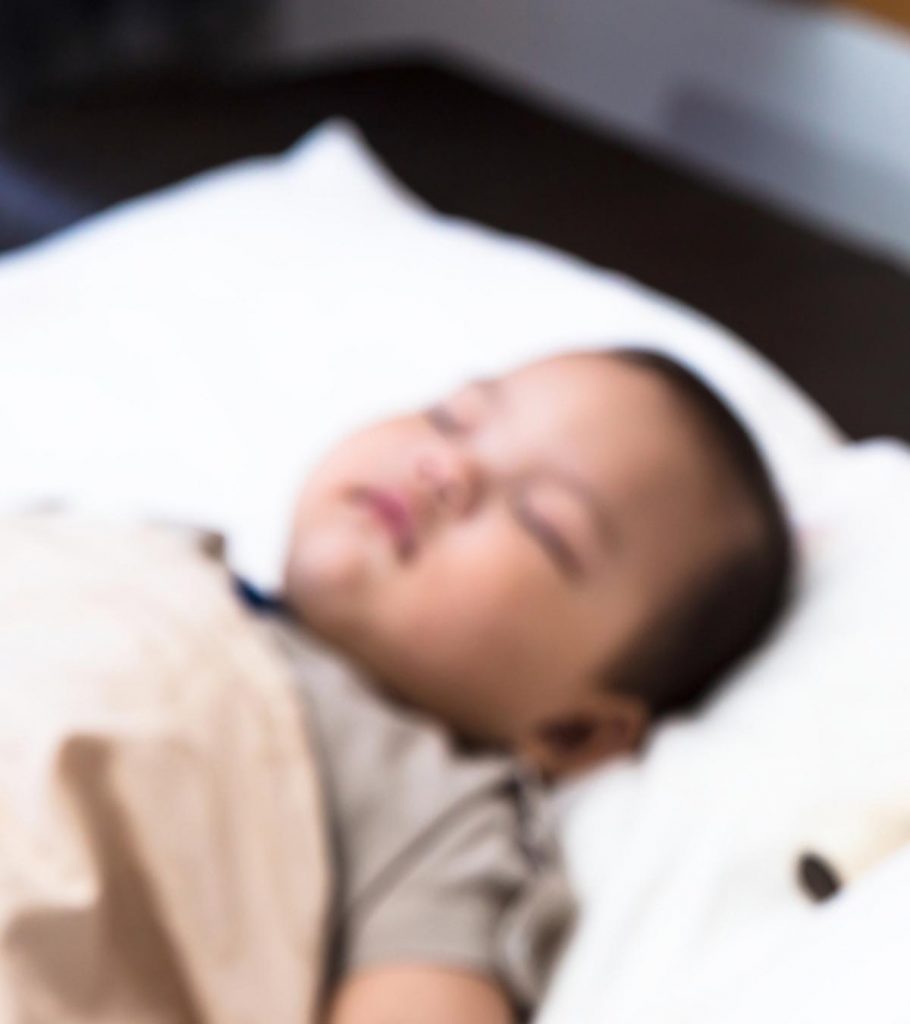Dehydration is a lack of adequate fluid in the body. It may occur due to reduced fluid intake and/or increased fluid loss from the body.
Water is essential for several physiological functions, including bowel movements, urination, and sweating. Babies and toddlers are usually at a higher risk of dehydration, which can affect several processes within the body. It is vital to restore the body’s fluid levels to prevent adverse outcomes and complications.
Read this post to know about the signs, causes, diagnosis, treatment, and prevention of dehydration in babies.
Signs And Symptoms Of Dehydration In Babies
The following signs and symptoms are seen in babies during dehydration (1).
- Dark urine
- Sunken eyes
- Oliguria (less urine), less than six wet diapers in a day
- Dry lips and tongue
- No tears while crying
- Sunken fontanel (soft spot) on head
- Irritability
- Sleepiness
- Unable to bottle or breastfeed
- Wrinkly skin and cold hands
- Constipation may occur due to dehydration if it is not caused by diarrhea
- Abnormal breathing pattern
Dehydration in babies is usually diagnosed by evaluating the signs and symptoms along with physical examination. It is essential to monitor your baby’s health status and symptoms during home care.
Causes Of Dehydration In Babies
Not consuming enough water (fluid), especially to replace the lost fluid in the body, could result in dehydration in newborns and infants. Illness is often the cause of dehydration in older babies and toddlers.
Below are the various reasons that could lead to dehydration in babies and toddlers (2).
- Breastfeeding issues such as inadequate or infrequent breastfeeding, latching issues, or reduced milk
- Bottle-feeding issues, such inability to latch to a bottle’s nipple correctly, could cause insufficient feeding.
- Climatic conditions, such as high temperature and increased humidity, may cause fluid loss through sweating.
- Fever may increase water loss, and often babies may feed less due to fever.
- Diarrhea may cause water loss through frequent bowel movements.
- Pain and illnesses may cause feeding refusal in some babies.
- Problems with sucking and swallowing due to problems, such as a stuffy nose, sore throat, and earache, may interfere with fluid intake.
- Repeated vomiting may cause water loss from the body and often interfere with water intake.
- Nursing strikes for a long time, especially due to illnesses, could result in dehydration.
Babies may become dehydrated even without the presence of the above-mentioned conditions. Therefore, stay observant of signs of dehydration to detect it early.
When To See A Doctor?
Always seek medical care for dehydration if your baby is younger than six months. Severe dehydration can be life-threatening in babies. You may seek advice from a pediatrician regardless of age if the baby has any signs of dehydration.
It is vital to seek immediate medical care in the following cases (3).
- Diarrhea for more than eight hours
- Sunken fontanel
- Inability to feed
- Persistent fever
- Frequent vomiting
Treatment For Dehydration In Babies
The dehydration treatment may vary depending on the severity and underlying cause. Mild dehydration in babies older than three months can be managed at home according to the doctor’s instructions.
Babies with severe dehydration or prolonged underlying conditions, such as vomiting or diarrhea, may require hospitalization. Intravenous (IV) fluids are given for severe cases since oral intake may not be possible or enough. Babies may also receive medications to treat the underlying causes (4).
The following treatments are prescribed in outpatient care.
- Medications for diarrhea, vomiting, and other illnesses are prescribed if needed
- Oral rehydration solutions
- Supplementation with infant formula is recommended if breast milk is not enough for the baby
Pediatricians may also check for breastfeeding techniques and latch. If there are any breastfeeding issues, they may refer you to a lactation consultant for further evaluation and management.
The following ways may help to keep your baby hydrated at home.
- Follow the doctor’s prescription to give oral rehydration solutions, such as Pedialyte.
- Offer bottle or breastfeeding frequently if they are not feeding enough at a time.
- Give medications for vomiting or diarrhea as per the prescription.
- Give water or other fluids if recommended by the pediatrician. Giving wrong fluids may worsen the dehydration and underlying conditions.
- Keep the baby in a cool place and remove excess clothes or blankets depending on the weather conditions.
- Keep a record of feeding and wet diapers.
Prevention Of Dehydration In Babies
The following tips may help to prevent dehydration in babies (3).
- Feed newborns frequently for enough time
- Do not stop feeding during diarrhea or vomiting since they need more fluid to replace the loss
- Monitor wet diapers
- Avoid being outdoors in extreme heat and humid conditions
- Choose bedding and clothing according to the weather
- Avoid giving water to babies younger than six months since a small quantity may make them full, and they may feed insufficient breast milk or formula
- Maintain hygiene to prevent infections that may cause diarrhea and vomiting
- Take necessary vaccinations such as rotavirus vaccine
Dehydration, when left unattended, could increase the risk of complications, such as hypotension (low blood pressure) and hypovolemia (low fluid volume). Thankfully, you can spot the signs of dehydration and take the necessary steps to replenish the fluid content of the baby’s body. If signs of dehydration persist or worsen, consult a pediatrician immediately.
